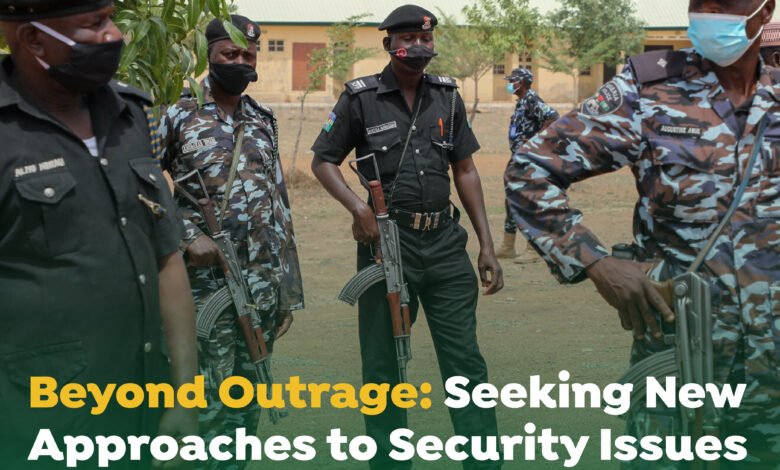
The ravaging effects of insecurity in northern Nigeria are well-known and well-documented.
For decades, the region has grappled with a series of existential challenges in cattle rustling, insurgency, and banditry.
While cattle rustling has been subdued and insurgency defeated in large part, the menace of banditry keeps rearing its head like a demon, leaving tales of fear and agony in its wake.
Security experts have long urged critical northern stakeholders to work together to address the various threats in the region without resorting to a name-calling and blame game.
However, the recent revelation of Zamfara State Governor Dauda Lawal has added another twist to the region’s security scourge.
In a televised interview, Governor Lawal disclosed that several efforts undertaken by the state government continued to suffer setbacks, noting that the lack of political will has undermined efforts intended to clip the wings of the outlaws.
“By name, I am the chief security officer of my state, but when it comes to command and control, I don’t have control over any of the security outfits, whether the military, the police, or civil defense,” the governor disclosed in an interview. He asserted that all security outfits receive instructions from their superiors, not the governors. He contended that if the state controlled the security apparatus, they could win the battle against criminals in two weeks.
‘ A new approach to insecurity’
President Bola Tinubu’s appointment of new service chiefs one year ago quickly sent shockwaves down the spines of various criminal gangs in the country. In months, the rejigging of the different security heads in the nation gave criminals a run for their lives. Banditry, the scourge that continued to plague the north, swiftly ebbed into oblivion. For a while, normalcy and stability replaced chaos and bloodshed.
But the kinetic approach to stemming the tide of insecurity can only go so far. Experts warned that the continuous use of lethal force may have a counterproductive effect in the fight against various criminal elements across the country. They suggested a combination of both kinetic and non-kinetic approaches to resolving the problem of insecurity. “You need no one to tell you that the use of lethal force, when not carefully and tactfully handled, may eventually end up being counterproductive,” Ismail Adamu, a security expert, contended. “What you need is a combination of the two: fight the criminals, but don’t leave conditions that have made crimes and criminalities such an enticing and lucrative adventure in the first place.”
To truly address the insecurity in northern Nigeria, a multifaceted strategy that goes beyond military force is crucial. This approach must prioritize social investment, addressing the poverty, unemployment, and educational gaps that drive individuals to criminal groups. It must also focus on community policing, building trust and fostering cooperation between security forces and local communities.
Furthermore, deradicalization programs are essential, providing opportunities for rehabilitation and reintegration for those who have been lured into banditry, helping to break the cycle of violence and promoting lasting peace.
‘ Katsina farmers attack’
Just recently, heavily armed bandits stormed Yargoje, leaving a trail of at least 50 brutal murders and countless kidnappings. This horrific incident, a grim reminder of the ongoing security crisis in Northern Nigeria, demands not just outrage, but a collective effort towards lasting solutions.
Analysts suggest multi-prong approaches to addressing the menace: “You will have to look at the security situations in the country before this government came on board to appreciate what has been done,” Jude Chinedu said. “But that is not to say more cannot be done to secure the length and breadth of Nigeria from bandits and other criminal elements.”
‘ Governors as true Chief Security Officers’
As calls for restructuring intensify, many have noted that Governor Dauda Lawal’s recent outburst might reflect in a series of deliberations that will ensue. Experts acknowledge that devolving security powers to governors carries some risk of misuse. However, they believe this approach could be a significant step towards resolving the national security crisis. They posited that most security challenges are local issues that deserve local solutions. “Abuja is far,” Tunde Aremu concluded, “That’s why it’s hard to effectively tackle some of these challenges headlong”.





